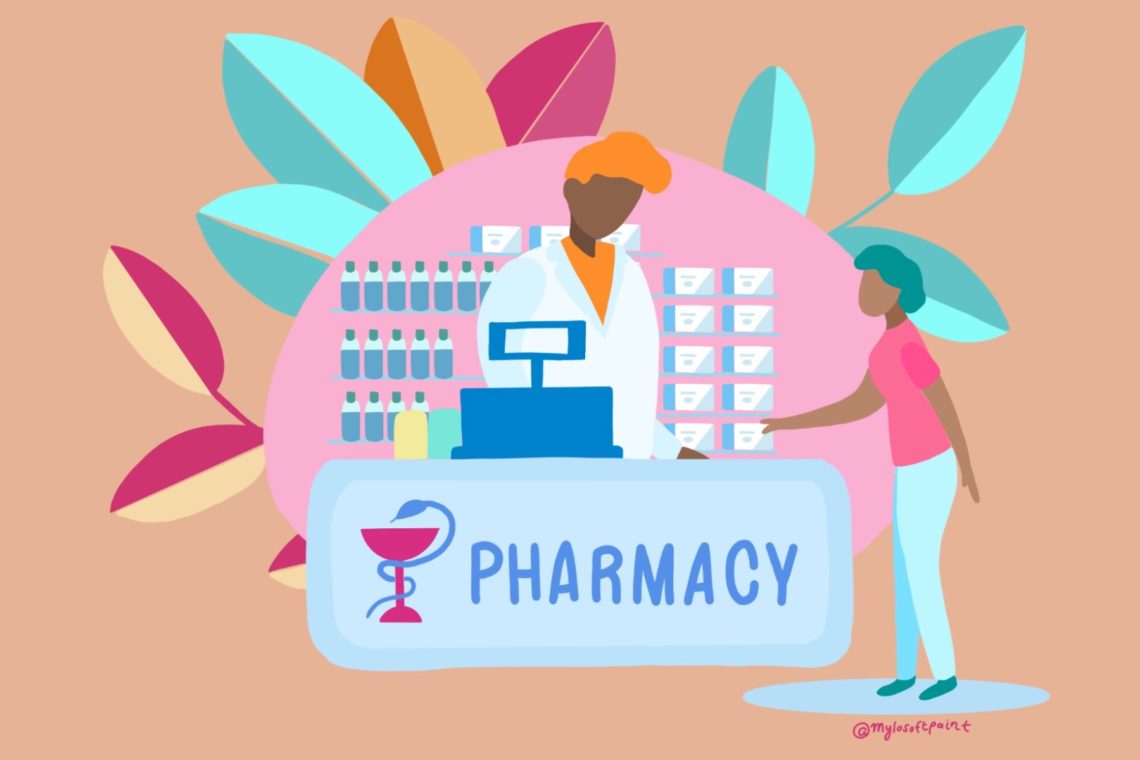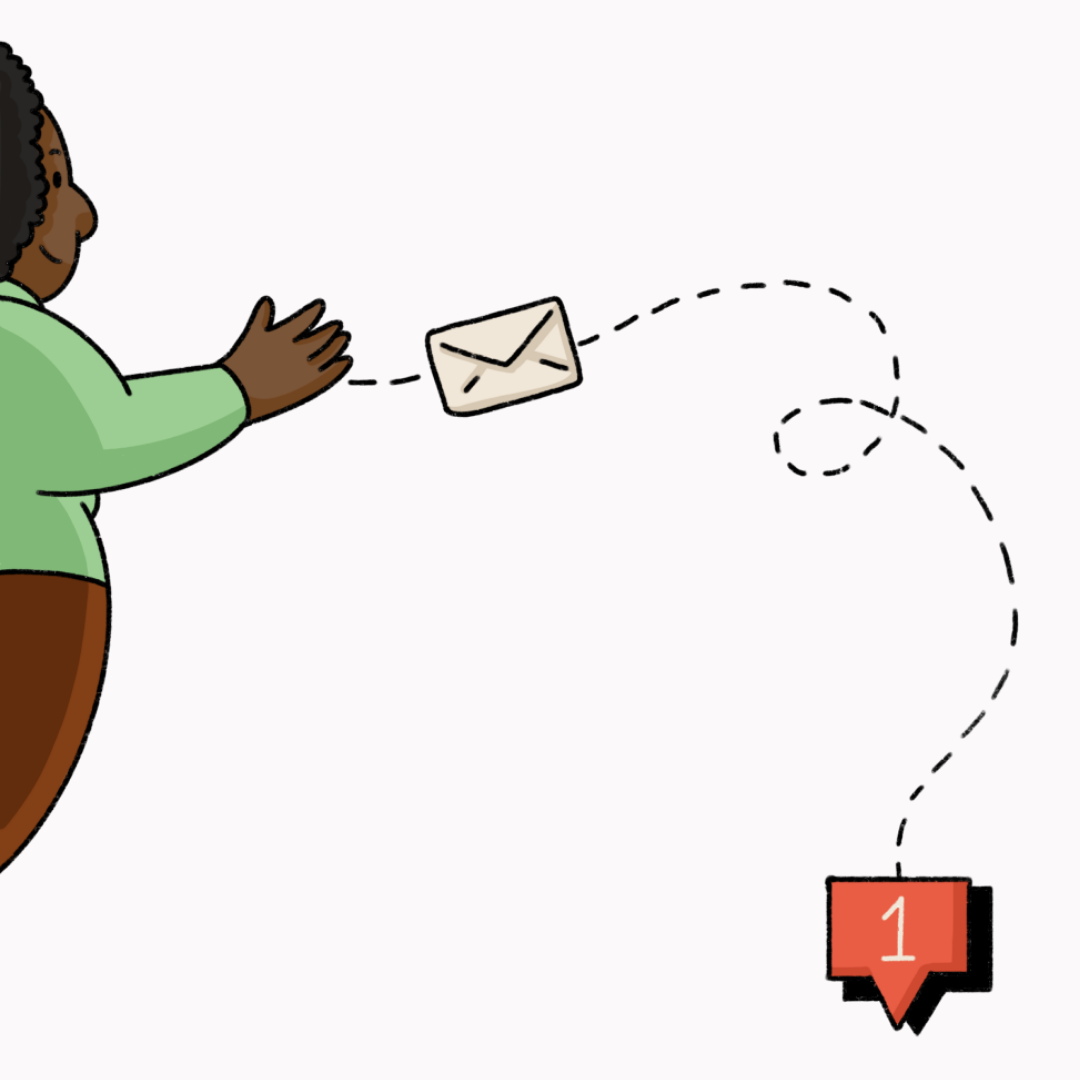Written By: Anny Gervais (she/her).
Edited By: Camille Zeitouni (she/her).
« Hi, um…I think I need the morning after pill…How does that work?”
…Is something lab technicians and pharmacists hear on a regular basis; probably more often than some people think. As a cis-woman, I was completely unaware of the steps needed to take in order to access emergency contraception, until I began my Pharmacy degree over two years ago and started working as a lab technician. Thankfully, I have since learned that the process is much easier than I had thought, but I still wonder why I wasn’t made aware of this sooner. And, mostly, why it took me starting a professional degree to learn this.
As healthcare professionals and trainees, it is our mission to make sure our patients are as informed as possible on what they can access, especially when it comes to sexual health.
“So, what is it exactly?”
Emergency contraception, or more commonly known as “the morning after pill”, “the Yuzpe method”, or “plan B” is a hormonal preparation used to prevent a pregnancy after unprotected sex.
Emergency contraception has three main mechanisms of action: (a) it can delay ovulation, (b) it can prevent fertilization of the egg or (c) it can prevent the implantation of the fertilized egg. It cannot, however, abort an already implanted embryo, which is why emergency contraception should be taken as soon as possible after unprotected intercourse. Ideally, for maximum efficacy, the pill should be taken between 12 to 24 hours after having unprotected sex. But, contrary to the popular belief due to the play on words “morning after pill”, emergency contraception can actually be taken up to 5 days after intercourse.
As a lab technician, Plan B is the emergency contraception I see pharmacists prescribe the most. It consists of two tablets of levonorgestrel that are taken in one single dose. Another option is Ella, a single tablet of ulipristal. Ella and Plan B are alike in terms of efficacy and are both covered by RAMQ (the public health insurance plan in Québec) or private insurance companies. This is important to keep in mind as finances can often create barriers for patients when seeking medical care. Finally, the Yuzpe method can be used for patients who are already on an oral contraceptive. This method consists of taking 4 to 5 active hormone pills (varies depending on the brand) of their usual contraceptive in two doses, 12 hours apart. However, this method is a little less effective than Plan B or Ella. In fact, it is usually recommended that for the Yuzpe method, the pills should be taken in a 72-hour window (ideally in the first 24h) after unprotected intercourse. Furthermore, all of these options can cause side effects such as nausea, vomiting, headaches, and dysmenorrhea (cramping), but are typically seen more often in patients opting for the Yuzpe method.
That being said, although we often think about “the morning after pill” when talking about emergency contraception, patients can also choose to have a copper intrauterine device (IUD) inserted within 7 days by a healthcare professional following unprotected intercourse as a means of emergency contraception.
An Important Note: As a healthcare professional or trainee, if the patient is already taking an oral contraceptive, it is important to make sure to ask them about potential side effects they could already be experiencing from their current medication. Since emergency contraception contains similar ingredients to regular contraception, but in stronger doses, patients may experience stronger side effects than usual which can be extremely distressing for some. Furthermore, if the patient is known for nausea and vomiting, emergency contraception could lead to the vomiting of the pills, reducing the efficacy if the vomiting happens within 1 hour for the Yuzpe method or within 3 hours for Ella. Plan B typically causes less side effects and should therefore be recommended in such cases.
“Okay great, now I know what it does…but how exactly do I get it?”
In Québec, emergency contraception can be prescribed by a doctor, a nurse, or a pharmacist. After unprotected intercourse, the fastest and easiest way to access emergency contraception is typically by going to a community pharmacy and asking to speak with the pharmacist in service.
Pro-tip for patients
Most times, you’ll be greeted by a lab technician at the prescription counter. Some may ask you a brief reason as to why you would like to speak with the pharmacist. Remember, that you don’t have to mention the reason for your visit to the lab technician if this is something you wish to keep between you and the pharmacist. This question only helps the lab technician in informing the pharmacist about the reason for consultation, which can give an idea of the amount of time the encounter will take (this is particularly relevant when the pharmacy gets busy with patients). Also, if the reason for consultation warrants having a patient record in the pharmacy system (which is the case for emergency contraception), notifying the reason for your visit to the technician will allow them to create the record with you until the pharmacist is available, facilitating the length of the process.
Advice for healthcare professionals and trainees
When having a consultation for emergency contraception, remember to offer the patient a private area where you can ask all the questions you need. Pharmacies typically have “semi-confidential areas” at the prescription counter that are delimited by partitions. Sometimes, when the pharmacy gets busy (and sometimes out of habit), the consultations may occur within this space. However, always remember that typically this consultation involves asking sensitive questions about the patient’s health and sexuality, and so a private office (typically available in a pharmacy) may be best.
As well, having most likely done this kind of consultation various times in the past, healthcare professionals and trainees may be more comfortable asking the patient about the unprotected intercourse, their use of contraception, their periods, etc… and this probably feels routine. But, remember, this may and probably is the first time the patient is needing emergency contraception – most people that have used emergency contraception have only done so once in their life (1). Therefore, the patient may feel awkward and/or experiencing anxiety, and forget to ask for privacy. Or, they may think that doing this over the counter is normal. So, remember it is our responsibility to offer this option if the patient doesn’t ask for it!
Finally, once you have completed the consultation, chosen the appropriate treatment, and explained the treatment to the patient, it is also pertinent to suggest prescribing an oral contraceptive if the patient does not have a method of contraception already. In fact, pharmacists and nurses in Québec can prescribe an oral contraceptive for an initial 3 months after which the long-term management should be taken care of by the physician. As well, if necessary, it is important to refer the patient to the appropriate resources for STI screening.
All in all, it goes without saying that, as healthcare professionals and trainees, our responsibility goes towards patient care and this includes, among many things, sexual health. It is our role to be available if patients have any concerns, and to recommend appropriate treatment depending on their needs and wishes. We should strive to create meaningful and trusting relationships, and it is never our place to judge. From a lab technician (and almost pharmacist) perspective, this relationship is even more important as pharmacies are the easiest point of access for a patient to seek a healthcare professional. By being available and accessible to our patients as a front-line healthcare provider, we can significantly influence the agency patients have over their overall well-being and health.
References:
1. Pixel: santé sexuelle des jeunes adultes au Québec [Internet]. INSPQ. [cited 2021Jan9]. Available from: https://www.inspq.qc.ca/espace-itss/pixel/sante-sexuelle-jeunes-adultes



